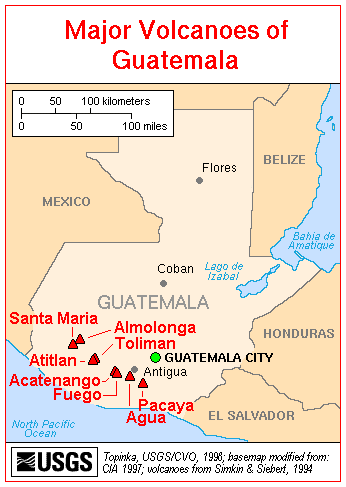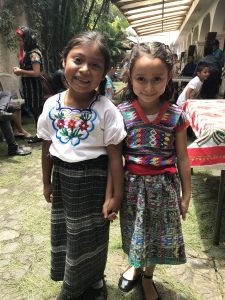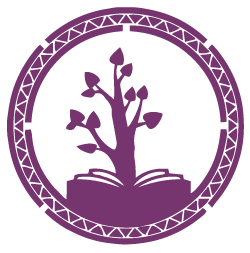Life after Fuego in a developing nation
From the roof of the house where I am staying, I can see two volcanoes — Agua and Fuego. They are the giants that surround this small city, and they make up many of the postcard images of Antigua, especially the dormant Agua, which rises a few miles from the south end of the city.
Fuego’s eruptions shocked the small communities of El Rodeo, San Miguel Los Lotes and Escuintla. The death toll continues to rise as rescue workers search for those caught in the fury of the pyroclastic flow. Two smaller eruptions followed the major eruption on Sunday, one Tuesday and one Friday morning. They are decreasing in magnitude and frequency. People in the direct path of the pyroclastic flow did not survive, and evacuations remain in effect for areas around the volcano.
All of that being said, there is a lot of misinformation or misappropriated fear in the news, especially in the news abroad. Based on the reports, one would think that the entire country of Guatemala is erupting. It is not.
It is important to read the news and to take in the dramatic images and videos from the eruption. Grieve with the people who are grieving. Support the relief efforts as you are able to. A secure way of donating and ensuring that your support reaches the victims is to donate to the relief fund through Escuela Integrada. Learn as much as you can about the fragile economy of the country and the problems that plague the government here. Study maps of the affected areas. Pray for the victims and their families.
Then, come visit.
Yes, it is smart to have a healthy skepticism of travel in the aftermath of a natural disaster, especially if travels to Guatemala included climbing volcanoes. I climbed Pacaya last summer, and that one is also erupting. What I don’t want to see happen to this already affected country is for people to stop visiting. The country needs the tourist income now more than ever. I am not saying people should put their life in danger, but I think it’s important to understand the reality of the situation before making any decisions.

Understanding the reality starts with facts. Fact №1: There are active volcanoes in Guatemala. Fact №2: Guatemala sits on the “Ring of Fire” where volcanoes and earthquakes happen precisely because of the tectonic plates of its geographic location. Fact №3: The Guatemalan people have been living with the reality of volcanoes and earthquakes for the entirety of the country’s existence (and well before that with the ancient civilizations of Mesoamerica). Fact №4: More eruptions and more earthquakes will happen. Fact №5: In a developing nation, life continues after any one of these natural disasters occurs. It must. There is no other option.
Let’s spend some time dissecting Fact №5.
I arrived in Guatemala City late Wednesday night and everything seemed “normal” in the airport and on the plane. The flight was still mostly full, with maybe one or two unoccupied seats. Thursday morning, I walked my normal route to the school, looking for signs of disaster or destruction. After watching the news for nearly three days in Houston, I expected the whole area to be either in chaos or in mourning. Instead, as I passed tiendas and people on the streets, they extended a welcoming “Buenos dias,” and I continued on my way.
Dirt and ash piles decorated the streets, waiting to be removed by a pick-up truck. The workers who shoveled the ash out of the drains wore masks to prevent excess inhalation. Everyone else walked to work or school without much external expression of crisis. Yes, the streets and sidewalks are a little more dirty than normal. Yes, people are collecting funds and volunteering with relief efforts. But the majority of the destruction — and the images on the news — was localized to the southeast facing slope of Fuego.
For residents of Antigua and the surrounding villages, life continued after the eruption. There was no other choice. Parents need to work. Kids need food. Families depend on daily income to survive. One day without work is one day without food. For the students at Escuela Integrada, one day without school might be a day without nutrition or dental hygiene — the kids eat two nutrient-rich meals per day at the school and brush their teeth after. A day without school is assuredly a day without the security of a safe environment where they will play, learn and grow as kids are supposed to do when they are young.
The school was closed Monday and Tuesday to clean up from the ash that fell from the eruption, but everything was back up and running by Wednesday. When the kids returned to school Wednesday, they participated in Arts Expression Week and hosted a Guatemalan Festival, where they wore traditional clothing and celebrated local customs and food. It was a beautiful demonstration of the resiliency required by life in a developing nation.
Before my flight left Wednesday, I spent a couple hours in prayer. My biggest question was, “God, is it still in your will that I go to Guatemala, or is it my ego that refuses to give up my already-made plans?”
Had I relied solely on the news, my decision would have landed in the camp of “Don’t go. It’s dangerous, Everything will be awful.” Had I relied on my ego, the decision would have been impacted by something like this, “But you can save the world! You have to go! If you don’t go, what are people going to think?”
Thankfully, as a person of faith, I was able to take all of the news, hesitations, ego implications, desires for ease and comfort and on-the-ground information from friends in the area and place them before God. In doing so, I felt far more desolation when I considered the possibility of not going, much to some of my friends’ and family’s dislike. Consolation does not necessarily mean feeling “happy,” but, instead, that with a decision comes peace and a sense of moving toward what God is asking.
Discerning a decision in this way does not mean that I should act without regard for the realities of the world, or that I should actively put myself in harm’s way, but that I should listen to the quiet voice in my heart to determine which direction to go. My decision ultimately wound up in the camp of “Go, try it, see what it is like, and, if it feels unsafe, come back.” I am extremely lucky to have that as an option in an era where many people do not, but that is for another discussion (or a review of last year’s story on citizenship privilege).
So, for now, I am in Guatemala, surrounded by the challenging presence of active volcanoes, aware of the dangers that exist and choosing to continue on the journey. And, if things change or the situation gets dangerous, I will come home.
Not everyone will reach the same decision, and that is okay. I would, however, encourage anyone who is considering travel to a developing nation to consider the realities of that type of experience, and to bring it before God in prayer.
Visiting Guatemala has never been about luxury travel. Instead, my time here is fueled by an intense desire to connect to the life my grandpa, my dad and my namesake knew in Latin America. And the commitment to use my vacation — and vocation — to give voice to people and issues I see remiss in the news. The news is now talking about Guatemala. Let’s continue the conversation far beyond eruptions to truly advocate for change in this country.
Note: This post originally appeared on the author’s Medium page.

